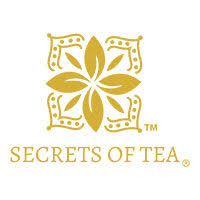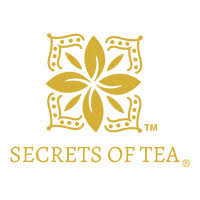Lactation Tea: Can it Really Help Increase Your Milk Supply?
Breastfeeding is a natural and beautiful way to nourish your baby, but it's not always easy. Many new mothers struggle with low milk supply, which can be stressful and discouraging. That's where lactation teas come in. These teas are marketed as a supplement for increasing breast milk supply, but do they really work? In this article, we'll explore what lactation tea is, the herbs used, its safety, how to use it, and other ways to increase your milk supply.
What is Lactation Tea?
Lactation tea is a blend of herbs that can be consumed as tea, typically several times a day, during the postpartum period. It's marketed as a supplement for increasing breast milk supply. There is ample anecdotal evidence from women claiming that they noticed a positive increase in their milk supply while using lactation tea.
Herbs Used in Lactation Tea
Some of the common herbs found in lactation teas are fenugreek, blessed thistle, fennel, stinging nettle, goat's rue, moringa, and milk thistle.
- Fenugreek: This herb has a taste similar to maple syrup and is thought to help increase milk production. However, it should be avoided during pregnancy as it can cause uterine contractions.
- Blessed Thistle: This herb is commonly used for digestive issues as well as part of lactation teas.
- Fennel: While not thoroughly researched enough to prove effectiveness for increasing lactation, two studies found it may help increase milk volume.
- Stinging Nettle: This herb is full of nutrients and antioxidants and is thought to reduce inflammation and lower blood pressure. It's not safe for pregnant women to consume due to its potential to cause uterine contractions, but there are anecdotal stories about its ability to assist with lactation.
- Goat's Rue: This herb is said to help the liver, the adrenal gland, and digestion in addition to its potential lactation benefits.
- Moringa: This herb has been popular around the world for many years and is hyped for its nutrient content as well as its antioxidant and anti-inflammatory effects.
- Milk Thistle: This herb is thought to be good for the liver, bones, and brain.
How to Use Lactation Tea
While you should always follow the specific instructions that come with your lactation tea, in general, lactation tea is brewed like most other teas. You can usually sweeten it, drink it iced, or add other flavors to it. In general, somewhere between 1 to 3 cups a day is suggested, but always note how much is recommended for your specific type of tea.
Teas to Try
Discover the soothing and nourishing world of lactation teas from Secrets of Tea, specifically crafted to support nursing mothers in their breastfeeding journey. With a range of delicious and healthful options such as Lactation Tea Fruits and Lactation Tea Lemongrass, Secrets of Tea provides mothers with a delightful way to enhance their milk production and overall well-being.
Lactation Tea Fruits is a delectable blend of fruit flavors and natural herbs, designed to help increase milk supply while offering a refreshing and enjoyable taste experience. Bursting with a fruity medley, this tea combines the best of nature's offerings to provide a delicious and functional beverage for nursing mothers.
Lactation Tea Lemongrass, on the other hand, offers a zesty and invigorating experience with the power of lemongrass and carefully selected herbs. This unique blend supports healthy lactation while delivering a rejuvenating and uplifting aroma, making it the perfect choice for mothers seeking a revitalizing beverage during their breastfeeding journey.
Secrets of Tea's lactation teas are crafted from the finest organic and natural ingredients, ensuring safety and quality for both mother and baby. With a focus on supporting the health and well-being of mothers and babies, Secrets of Tea provides a delightful assortment of lactation teas designed to suit every taste and preference.
Other Ways to Increase Your Milk Supply
If lactation tea isn't your preferred method or you're not getting the results you hoped for, there are plenty of other methods to try. Some of the most popular include:
- Eat lactation cookies and bars. Expect a lot of oats, baker's yeast, wheat germ, and flaxseed!
- Enjoy some extra skin-to-skin time with your baby. This will not only help you and your baby feel secure, but it will help inspire those loving, relaxed feelings that can help get milk flowing.
- Avoid certain medications, tight-fitting bras, and smoking, which can all negatively impact milk production.
- Stay hydrated. Staying well-hydrated is important not only for your own health but also for producing lots of breast milk!
- Get a massage or extra sleep. Rest and relaxation may be hard to come by with a baby in the house, but just like extra skin-to-skin time, this
can help increase the hormones needed to produce and release more breast milk.
-
Feed or pump frequently. Breasts produce milk based on a theory of supply and demand: The more you extract and the more frequently you extract milk, the more breast milk the body will think it needs to make.

Takeaway
Breastfeeding is a unique experience and a personal journey. For women who want to increase their milk production, there are lots of options to try, including lactation teas.
While there is limited scientific evidence to support its effectiveness, many women have reported anecdotal benefits. Additionally, the act of taking time to care for oneself and enjoy a relaxing cup of tea can release the relaxed, loving hormones that are beneficial to milk production.
If you stick with a source you feel comfortable with, consume a normal amount, and make sure to avoid any allergens, you will have gotten some extra hydration and nutrients — and possibly a blissful moment to yourself!
FAQ's
How can I tell if my milk supply is low?
Some signs that your milk supply may be low include your baby seeming fussy or unsatisfied after breastfeeding, a decrease in the frequency or duration of your baby's feedings, or not being able to express much milk when pumping.
What are some reasons why milk supply may decrease?
Milk supply can decrease for a variety of reasons, such as infrequent or ineffective breastfeeding, stress or fatigue, certain medications, or certain medical conditions such as thyroid issues.
Can I increase my milk supply if it's low?
Yes, there are several strategies you can use to increase your milk supply if it's low, such as breastfeeding or pumping more frequently, ensuring proper latching and positioning during breastfeeding, staying hydrated and well-nourished, and considering lactation supplements or medications.
How often should I breastfeed or pump to increase my milk supply?
Frequent and regular breastfeeding or pumping sessions can help increase milk supply. It is recommended to breastfeed or pump at least 8-12 times per day, or whenever your baby shows signs of hunger.
Can certain foods or drinks help increase milk supply?
Some foods and drinks are believed to help increase milk supply, such as oatmeal, almonds, fenugreek, and lactation teas or supplements.
How long does it take to increase milk supply?
The amount of time it takes to increase milk supply can vary depending on the individual and the strategies used. It may take several days to several weeks to see an increase in milk supply.
Should I use a breast pump to increase milk supply?
Using a breast pump can help stimulate milk production and increase milk supply. It is recommended to use a high-quality electric breast pump and to pump for at least 15-20 minutes on each breast, or until milk flow stops.







Leave a comment